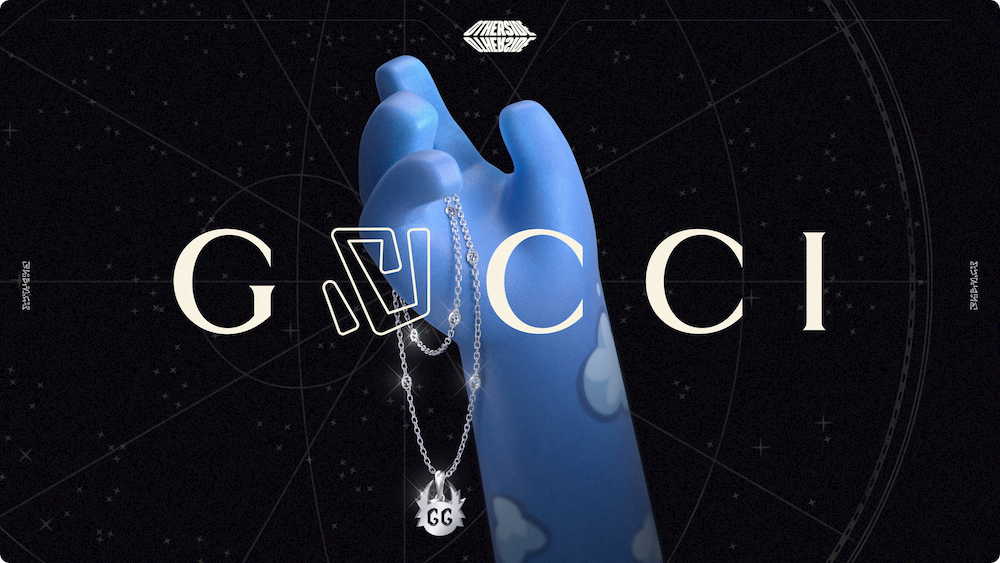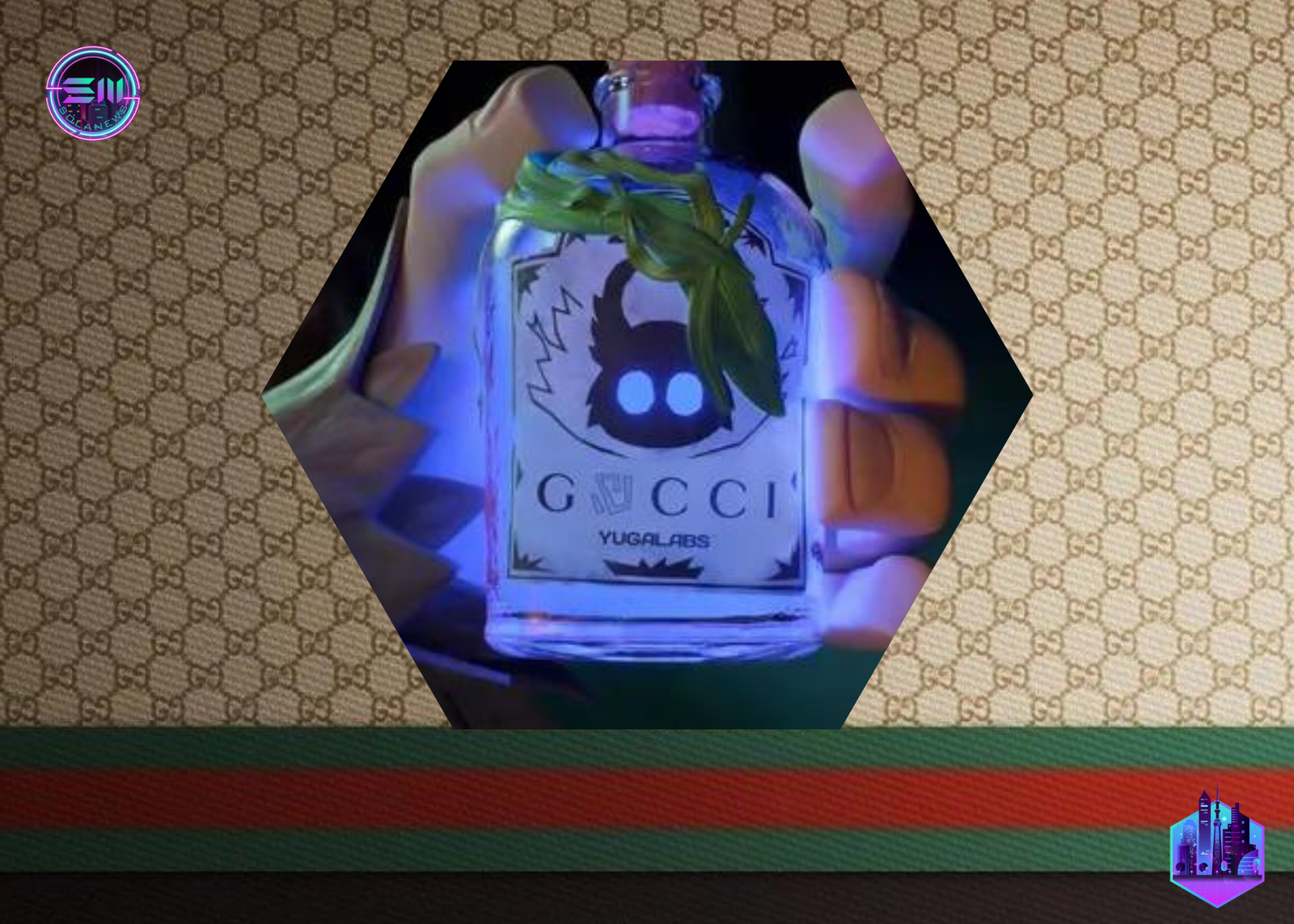Yuga Labs, the digital assets incubation firm and the parent company behind the famous Otherside metaverse game, has partnered with luxury fashion house Gucci to launch the Otherside-themed jewelry non-fungible token (NFT) collection. The companies announced “Otherside: Relics by Gucci,” a limited-edition series of physical Gucci products and associated NFTs tied into the lore of Otherside.
The first “Relic” to be released via Yuga’s collaboration with Gucci will be the KodaPendant, an NFT representing both a physical piece of jewelry and a nonfungible token that will unlock numerous perks within the Otherside metaverse. Exactly 3,333 KodaPendants will be made available for sale beginning on Thursday, April 6, at 6:00 pm EST. They can only be bought with Apecoin, Yuga’s native cryptocurrency, and will each cost 450 APE, or $1,917 at writing. KodaPendants will only be available to current holders of Koda or Vessel NFTs.
Those eligible to purchase can do so on Thursday, April 6. Learn more on the @Othersidemeta blogpost: https://t.co/nK6vnO0j4I
— gucci (@gucci) April 3, 2023
The physical pendants will only be made available via mail to residents of select countries, including the United States, Canada, most European nations, and a select number of Gulf states: Kuwait, Qatar, Saudi Arabia, and the UAE. Notably, no residents of any African, Central American, or South American nation are eligible to receive a pendant, nor are residents of any Asian countries—with the single exception of Japan.
The KodaPendant NFTs will also unlock unique cosmetic options for Otherside avatars, which will launch next month. For no additional cost, holders of KodaPendants will also be able to claim a real, physical piece of jewelry from Gucci later this year. Each KodaPendant NFT will come with one physical KodaPendant, a silver chain adorned with a silver pendant in the shape of a Koda alien, inscribed with “GG,” a shorthand among gamers for “good game.” Each physical KodaPendant will be also inscribed with a unique edition number on the back.
This new Otherside: Relics by Gucci partnership is not the first time a high-profile NFT company has collaborated with a luxury fashion giant to create rarified physical goods tied to digital ownership. Last year, CryptoPunks, which is also owned by Yuga, collaborated with luxury jeweler Tiffany’s to create a limited edition NFT-backed series of 250 gold, ruby, and diamond necklaces, each modeled in the likeness of purchasers’ unique CryptoPunk NFT avatars. Those necklaces, which each cost $51,000, sold out instantly, and skyrocketed Cryptopunk trading volume in the process.
As the metaverse and Web3 spaces continue to grow, luxury brands like Gucci are exploring opportunities to create a community, prompt customer loyalty, and generate revenue. In a statement by Robert Triefus, Gucci Senior Executive of Gucci Vault & Metaverse Ventures, the company is excited to reveal its interdisciplinary collaboration with Yuga Labs. The partnership will also provide the luxury brand active participation in the persisting narrative of The Otherside and 10KTF, which embodies itself in several versions.
In today’s world, where everything is connected digitally, counterfeiting has become a huge concern. This is where phygitals, the concept of blending physical and digital goods, can help to combat plagiarism and counterfeit goods. It is a new phenomenon that has been popularized by NFTs and allows people to own something that has a physical presence as well as a digital one. In the case of the KodaPendants, holders of the NFTs will also be able to claim a real, physical

presence as well as a digital one. In the case of the KodaPendants, holders of the NFTs will also be able to claim a real, physical piece of jewelry from Gucci. This unique blend of physical and digital goods is commonly known as “phygital” and has become a popular trend in the fashion industry. It allows companies to create a more engaging and interactive experience for their customers, as well as providing a solution to issues such as counterfeit goods and plagiarism.
The concept of phygital is not new, and companies have been experimenting with it for years. The first known use of the term was by the Japanese designer Rei Kawakubo, who used it to describe her 1997 collection for Comme des Garçons. However, it is only recently that the term has gained widespread popularity, thanks in large part to the rise of NFTs and their unique blend of physical and digital ownership.
Phygital goods have several advantages over traditional physical or digital goods. One of the most significant advantages is that they provide a unique and personalized experience for customers. By combining physical and digital elements, companies can create a more engaging and interactive experience that is tailored to the individual.
For example, the KodaPendants NFT collection provides a unique and personalized experience for holders of NFTs. They will not only have ownership of a digital asset but also a physical piece of jewelry that they can wear and show off to others. This is a unique and personalized experience that cannot be replicated with traditional physical or digital goods.
Another advantage of phygital goods is that they provide a solution to issues such as counterfeit goods and plagiarism. By combining physical and digital elements, companies can create a unique and verifiable ownership experience that cannot be replicated. This can help to reduce the incidence of counterfeit goods and plagiarism, which can be a significant problem in the fashion industry.
For example, in the case of the KodaPendants NFT collection, each physical pendant will be inscribed with a unique edition number on the back. This will help to ensure that each pendant is unique and verifiable, reducing the risk of counterfeit goods. Additionally, by using blockchain technology to track ownership of the NFTs, Yuga Labs and Gucci can provide a verifiable ownership experience that cannot be replicated or copied.
The use of phygital goods is likely to become more widespread in the future, as companies look for new and innovative ways to engage with customers. With the rise of NFTs and the increasing popularity of the metaverse, phygital goods provide a unique and personalized experience that is tailored to the individual. Additionally, they provide a solution to issues such as counterfeit goods and plagiarism, which can be a significant problem in the fashion industry.
In conclusion, the Yuga Labs and Gucci partnership to launch the KodaPendants NFT collection is an exciting development in the world of phygital goods. By combining physical and digital elements, they are creating a unique and personalized experience for customers that cannot be replicated with traditional physical or digital goods. Additionally, they are providing a solution to issues such as counterfeit goods and plagiarism, which can be a significant problem in the fashion industry. It is likely that we will see more companies embracing phygital goods in the future as they look for new and innovative ways to engage with customers.

Thanks for reading Solanews , remember to follow our social media channels for more

